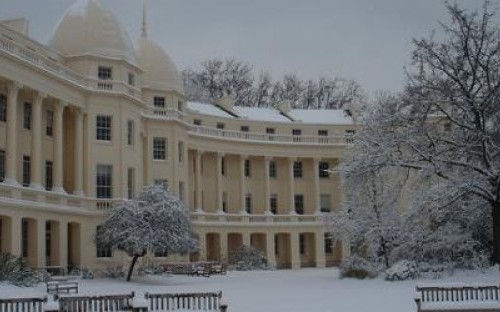“You can’t stop the snow, but you need to be prepared for situations like this”, said Elizabeth Scott, a Sloan Fellowship student at the School. She remembered being in Hong Kong in 2003, when SARS kept most people confined to their homes. “Schools found a way to communicate with their students online”.
Firms in Hong Kong found alternative routes to function, too. A broking firm had invited Steven Jobs to give a lecture, but when his visit was cancelled because of SARS the firm deployed “very sophisticated technology” to project a live 3D image of him to the audience.
“It was great for us, and also very good for the company’s reputation”, added Scott.
British technology, by contrast, did not appear to be up to meeting this type of challenge. Students at the School suggested making cancelled lectures available online but, “It did not seem to be technologically possible”, said Scott.
According to Executive MBA student Neil Boxton the snow highlighted a different vulnerability of the British economy: “In some areas of Western England food shelves have not been able to be replenished. Our distribution system is so centralised that rather than getting our pint of milk from the local farmer we now get it from hundreds of miles away”, he said.
The country’s dependence on public infrastructure meant that if the weather continued, the impact on the economy would be disastrous - unless ways of dealing with the snow were found: “Ploughs and de-icers are not the only recourses we should look at”, he said. New technology and restructuring of infrastructure were two further options, provided that “the right investments are made”, Boxton added.
By contrast Finance student William Lamain, 26, said it would be hard to justify all the costly precautions the city would have to take in order to be able to cope with extreme weather conditions that only occur every twenty years.
He also speculated that enduring snowfall might boost morale across the nation: “British people are a bit gloomy and pessimistic by nature, they might cheer up a little, and that’s always good for the economy. Plus,” he added, “if people got bored of sitting at home all day, we might get a snow baby boom in nine months.”
Sales of condoms have been rising along with unemployment rates in the UK, according to Durex and several retailers.
RECAPTHA :
a1
fa
33
7a







